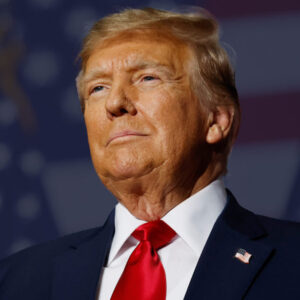What Does a Trump Presidency Mean for the Middle East?
The 2024 general election concluded with a historic and dramatic victory for Donald Trump, marking his return to the White House as the 47th president of the United States. Despite facing numerous challenges, including two assassination attempts, multiple impeachments, and a criminal conviction, Trump managed to secure the win over Vice President Kamala Harris. With likely Republican control of both houses of Congress, Trump’s victory sets the stage for a new era in American politics, with implications for both domestic and international affairs. This article will explore what that could mean for the Middle East.
Israel-Palestine
Donald Trump’s policy towards the Israel-Palestine conflict has been heavily one-sided. During his first term, he made several significant moves that favored Israel, including recognizing Jerusalem as its capital and moving the U.S. embassy there. He also brokered the Abraham Accords, which normalized relations between Israel and several Arab countries, including the UAE and Bahrain. Trump has signaled he will maintain his strong support for Israel in his second term, including support for Israel to “finish the problem” in Gaza. His approach has raised concerns about further escalation and the potential for increased violence in the region, as a singular prioritization of Israeli security and sovereignty comes at the expense of Palestinian aspirations for statehood.
Iran
Trump’s approach to Iran has been characterized by a “maximum pressure” campaign, which involved withdrawing the U.S. from the Joint Comprehensive Plan of Action, also known as the Iran nuclear deal, and the implementation of stringent economic sanctions. In his second term, Trump is expected to continue this aggressive stance, aiming to further isolate Iran economically and politically. His administration has consistently argued that these policies kept Iran in check and that the Biden administration’s approach allowed Iran to gain more financial resources. Trump has also stated his support for Israel’s right to defend itself against Iranian threats, suggesting a continuation of strong U.S.-Israel cooperation against Iran.
Yemen and Syria
The Yemeni and Syrian civil wars have been ongoing for years, causing immense human suffering and geopolitical instability in the region. Under a Trump presidency, these conflicts are likely to see significant developments. Trump’s administration is expected to continue its aggressive stance against Iran-backed groups in both countries, potentially leading to increased military interventions and airstrikes. This could further escalate tensions and violence and complicate efforts for peace and humanitarian aid. Additionally, Trump’s strong support for Israel may result in more direct confrontations with Syrian and Yemeni factions, further destabilizing the region. The humanitarian crises, with millions in need of food, water, and medical care, could worsen as military actions intensify. A Trump presidency could mean a more turbulent and violent period for Yemen and Syria, with significant implications for regional stability and global geopolitics.
U.S. Foreign Policy Toward the Middle East
Trump’s return to the White House is poised to bring significant changes to the Middle East. His administration’s approach is expected to continue emphasizing a strong military presence to deter adversaries like Iran. The U.S. military footprint in the Middle East remains extensive, with forces stationed in more than a dozen countries and on ships throughout the region’s waterways. Additionally, Trump is likely to strengthen alliances with key partners like Saudi Arabia and the United Arab Emirates, promoting further regional cooperation and stability. Trump is expected to continue the strategies from his first term that have been characterized by aggressive economic sanctions, military actions, and diplomatic moves that favor Israeli interests. While these policies aim to enhance stability and security, they also carry the risk of further escalation and conflict. The Trump administration will need to navigate the complex dynamics of the region, balancing support for key allies with efforts to address broader geopolitical challenges.
Further Reading
2024 Presidential Election Results
Here’s what’s at Stake in the Middle East under Trump’s second term
A Second Trump Administration: Potential Policy Toward the Middle East


